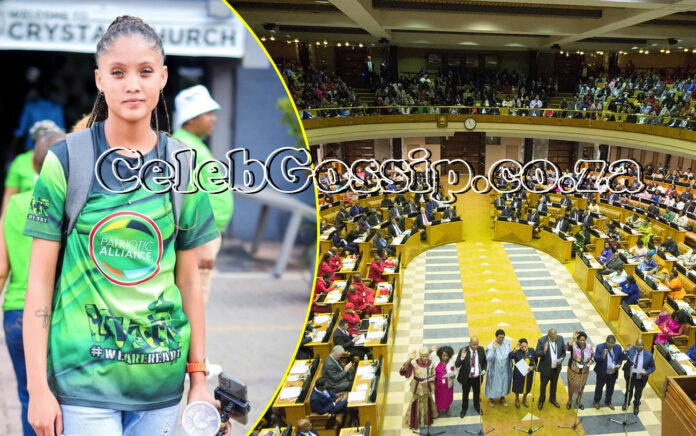South Africa's forthcoming seventh democratic Parliament is poised to welcome a diverse range of representatives, including the youngest Members of Parliament (MPs) in the nation's history. As the composition of the 400-seat National Assembly (NA) takes shape, there is a notable shift towards younger politicians, while female representation experiences a slight decline compared to the previous administration.
According to Mosotho Moepya, Chairperson of the Electoral Commission (IEC), the newly elected parliamentarians are a reflection of the choices, hopes, and aspirations of millions of citizens who exercised their democratic rights. The NA's average age is expected to be slightly younger than that of the previous administration, with members spanning from 20 to the eldest at 76.
Making headlines is Cleo Wilskut, a 20-year-old youth activist from the Patriotic Alliance, who becomes the youngest incoming parliamentarian in South Africa's democratic history. Wilskut follows in the footsteps of Itumeleng Ntsube, who became the country's youngest MP at the age of 21 in 2019 as a member of the African National Congress (ANC).
It is noteworthy that these young political leaders are entering Parliament as some of the highest-paid individuals in the country. Following President Cyril Ramaphosa's approval, MPs now earn an annual salary of R1.27 million, placing them in the top 3% of earners nationwide.
On the other end of the age spectrum, Christian Hattingh, former Chief Whip and Caucus Leader for the North West Provincial Legislature from the Democratic Alliance, takes the title of the oldest incoming MP at 76 years old.
Examining the seventh National Assembly's composition in relation to South Africa's population, there is a significant discrepancy in the representation of the 20 to 29 age group. Despite constituting nearly 18% of the country's population, this demographic accounts for only 3% of the NA makeup. This disparity is not unique to South Africa, as several African countries, including Rwanda, Morocco, Kenya, and Uganda, have implemented measures to reserve seats for youth representatives, aiming to address this underrepresentation.
While statistics for the age composition of the sixth Parliament are not readily available, a study conducted by the Parliamentary Monitoring Group (PMG) in 2021 shed light on the youth representation at that time. Excluding Ministers and Deputy Ministers, the study focused on 342 MPs (86% of the total) and revealed the following age composition for non-cabinet members:
As the age demographics shift in Parliament, attention is also drawn to the gender composition. South Africa has been recognized globally for its high representation of women in politics, frequently ranking among the top 10 countries in the Inter-Parliamentary Union rankings. However, the seventh Parliament sees a slight decrease in female representation, with elected women comprising 43.5% (174) of the total members, down from 45% (181) in 2019.
Acknowledging this decrease, Secretary to Parliament Xolile George affirms the National Assembly's commitment to advancing gender parity and emphasizes its continued influence on the global stage in promoting women's representation in politics.
As the seventh democratic Parliament takes shape, with its youngest members and evolving gender dynamics, South Africa enters a new era of representation. The nation eagerly anticipates the contributions and impact these diverse voices will have on shaping the future of the country.











